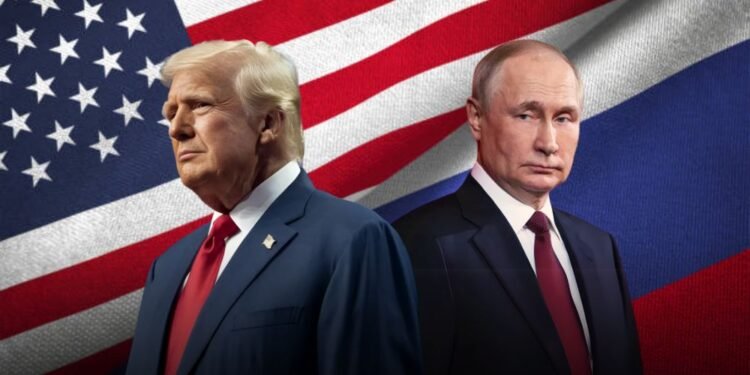U.S. President Donald Trump labeled Russian President Vladimir Putin “absolutely crazy” in a sharp public rebuke, responding to Russia’s largest-ever assault on Ukraine.
The overnight attack, which struck over half of Ukraine with more than 100 missiles and a similar number of drones, killed at least five people and injured 13 across 15 regions.
Speaking from the White House, Trump expressed frustration, saying he was “not happy” with Putin’s actions—a notable shift from his often-neutral stance on the Russia-Ukraine conflict. The escalation has raised global alarm, with implications for international stability and U.S. foreign policy.
The barrage devastated Ukraine’s infrastructure, particularly its energy grid, with 15 strikes targeting power facilities. Ukraine’s state-owned operator, Ukrenergo, implemented emergency power cuts, leaving thousands without electricity as winter looms.
President Volodymyr Zelensky called the attack a “massive” escalation, highlighting its scale and impact on civilian life. Russia’s defense ministry claimed the strikes hit military and energy targets, but the reported civilian casualties and widespread damage have drawn condemnation from world leaders.
The assault underscores Russia’s strategy to cripple Ukraine’s infrastructure ahead of colder months, intensifying the humanitarian crisis.
Trump’s comments come weeks before a planned meeting with Putin at the G20 summit in Brazil, adding diplomatic weight to his remarks. Analysts see the statement as a signal to pressure Russia toward de-escalation, though Trump stressed his goal of avoiding “World War III.”
The U.S. has committed $2.4 billion in military aid to Ukraine this year, including advanced weaponry, reinforcing its role as a key ally. However, Trump’s rhetoric suggests a balancing act—supporting Ukraine while prioritizing domestic issues and avoiding deeper U.S. entanglement in the conflict.
The attack’s scale has sparked broader concerns about global security. NATO allies are closely monitoring the situation, with some urging stronger sanctions on Russia.
The strikes also highlight the challenges of Ukraine’s defense, as its air systems struggled to counter the volume of missiles and drones. Social media platforms, including X, have been abuzz with reactions, from outrage over civilian losses to debates about U.S. involvement.
The conflict’s ripple effects—energy price spikes, supply chain disruptions—could further strain global economies still recovering from recent trade tensions.
For now, the world watches as Trump navigates this crisis. His condemnation of Putin marks a pivotal moment, but questions remain about whether it will lead to concrete policy shifts or remain a rhetorical jab.
As Ukraine braces for more attacks and Russia shows no signs of backing down, the stakes are high. The coming weeks, especially the G20 summit, could shape the conflict’s trajectory and test Trump’s ability to manage one of the most volatile geopolitical flashpoints in decades.












